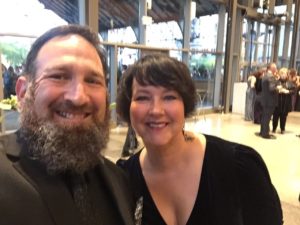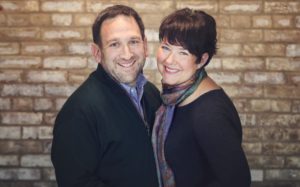Like many, we have a long and complicated relationship with new year’s resolutions. For years we made and promptly ignored them. Then we simply ignored making them. There was a good multi-year streak when Cassie’s annual resolution was to “drink more sparkling wine” and Dan was all too happy to tag along with that one. Finally, because he is prone to over complicating things, Dan developed a tradition of starting to think about a resolution on New Year’s Eve and then adopting it by the end of the first quarter and letting it run for the next year. That approach actually seemed to work for a while as Dan focused on things like being less judgmental, more grateful, choosing without regret, etc.
Last year following Cassie’s diagnosis, we simply let NYE pass without giving thought to resolutions. We were just trying to hang on. During this past year though we have learned that our life now requires a much higher level of intentionality. That can look different for each of us. Dan tries to set a daily aspiration. Cassie focuses on intentionally slowing down. We are checking in with each other more often and adjusting our schedules and plans on the fly. We have also talked about maybe needing or wanting a “theme” for our year to anchor us and provide some direction or sense of purpose for the year ahead.
So whether you call it a resolution, reflection, aspiration or theme here are a few things we are thinking about for the coming year.
- Embrace a sense of adventure and all that comes with it — the excitement, fear, anticipation and the unknown to name just a few things.
- Lean into gentleness — for us each individually and together as a couple. We aspire to “radical self-acceptance” but even just a little more self-gentleness will be good.
- Ask for help/accept help. We are so lucky to have a loving support community and we can let them in even more.
- Slow down.
- Be generous.
- Don’t wait.
- Have fun.
- Drink more bubbly.
Happy New Year!


